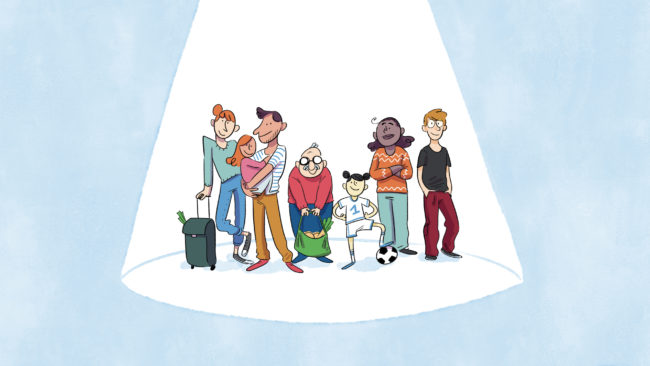Mark your calendars for the CEPS Webinar on engaging consumers (and families) in Circular Economy
12.10.20

As part of CIRC4Life, an EU Horizon 2020 Research Project, Make Mothers Matter conducted three consumer surveys in order to uncover how to better engage end-users in the circular economy.
On the 20th of October (11:00 – 12:15 CET), we will present the survey results and key recommendations in a Webinar on “How to encourage consumer engagement in the circular economy”.
This webinar will be the second of two webinars. The first takes places on the 14th of October and will be on “Incentivising new circular economy business models”.
Mothers have an important role to play in finding solutions to the current climate crisis.
In addition, women, and particularly mothers, play a key role in promoting sustainable practices among their children, family, and the communities they live in.
We therefore believe that mothers play a pivotal role in transitioning to a circular economy.
A report on the surveys’ results and our recommendations was sent to the European Commission in November 2019.
In this report, MMM highlighted that any new circular economy solutions or policies must consider the direct economic and social impact and the required investment in time. Although crucial for the wellbeing of the planet, this investment in time is not recognised. We drew a parallel between this unrecognised work for the environment and the unpaid care work undertaken mainly by mothers or women and which is absolutely necessary for the wellbeing of society.
We also recommended the inclusion of education on sustainable practices in school curricula or extracurricular activities. Societies need to train and encourage end-users and in particular families, in sustainable practices such as reducing waste, recycling and reuse, eco-friendly habits, use of energy-efficient products, consuming local, sustainable consumption, second hand buying, etc. These will have a multiplying effect, as they will transfer this knowledge to the families and communities they live in.
____________
1 OECD, Gender and Sustainable Development Maximising the Economic, Social and Environmental role of women, 2008, p.64
2 The World Health Organisation, Gender, Climate Change and Health, 2014, p.6.
Breaking the Cycle: Gender Equality as a Path to Better Mental Health
18.03.25
The Council of the European Union has taken a decisive step in recognising the vital connection between gender equality and mental health.
Europe Must Listen to Mothers: Our landmark report heads to the European Parliament
28.08.25
On 22 September 2025, the voices of mothers will take centre stage in Brussels. For the first time, Make Mothers Matter (MMM) will present its State of Motherhood in Europe
Belgian Mothers Face Alarming Rates of Burnout and Perinatal Depression, New EU Survey Finds
03.07.25
Belgian mothers are facing a mental health crisis. According to the State of Motherhood in Europe 2024 survey by Make Mothers Matter (MMM) and Kantar, Belgium reports the highest rates








